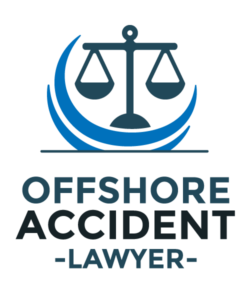Are Barge Workers Considered Seamen for Jones Act Claims?
Barge workers can qualify as seamen under the Jones Act if they meet specific legal requirements. They must work on a vessel in navigation, contribute to its mission, and spend a substantial portion of their employment aboard the vessel. If those conditions are met, a barge worker injured on the job may be entitled to compensation under Jones Act maritime law.
What follows explains how the law applies to barge work, how eligibility is determined, and what rights an injured worker has after an accident.
What the Jones Act Covers
The Jones Act is a federal law that gives certain maritime workers the right to sue their employer for negligence if they’re injured on the job. It’s designed to protect those who face dangerous conditions aboard vessels. For workers injured while working on a barge, the act offers compensation for:
- Lost wages
- Medical expenses
- Pain and suffering
- Loss of future earning ability
The law is a powerful tool—but it only applies to workers who meet the definition of a seaman.
How to Determine If a Barge Worker Qualifies

Not every person injured on or near a barge will qualify under the Jones Act. To be eligible, a worker must satisfy three major criteria.
1. The Vessel Must Be in Navigation
The barge must be afloat, operable, and capable of moving through navigable waters—rivers, lakes, canals, coastal areas, or other waters used for interstate or international commerce. Movement at the time of injury is not required. Even a vessel that’s docked or temporarily anchored may qualify.
However, the barge must not be permanently moored, drydocked, or withdrawn from service. A vessel that is out of navigation does not satisfy Jones Act requirements.
2. The Worker Must Spend Substantial Time Onboard
To be considered a seaman, in general, the worker must spend at least 30% of their employment time on the vessel. This applies not only to a single barge but also to a fleet of vessels under common ownership or control. The time calculation focuses on actual service aboard these vessels, not time spent ashore or at headquarters.
This rule prevents land-based workers from being improperly classified under maritime protections. A barge worker who regularly lives or performs duties aboard a barge likely meets this threshold.
3. The Worker’s Duties Must Contribute to the Vessel’s Mission
The worker must play a functional role in the barge’s purpose. Whether operating machinery, assisting in construction, handling cargo, or managing onboard systems, the work must contribute to the mission of the vessel. For instance, someone working on a maritime barge used for bridge construction or dredging operations generally satisfies this requirement.
This factor helps distinguish true seamen from those whose jobs are incidental or unrelated to vessel operations.
When a Barge Doesn’t Qualify

Some barges do not meet the criteria of a “vessel in navigation.” For example, casino barges that remain docked and never move—even though they float—often do not qualify. These structures lack propulsion and are not used in transportation or commerce.
In such situations, an injured worker would not be eligible under the Jones Act claims process. However, they may still have remedies under general maritime law or other compensation systems, such as the Longshore and Harbor Workers’ Compensation Act.
FAQs
Who is a seaman under the Jones Act?
A seaman is someone employed on a vessel in navigation who contributes to the vessel’s function and spends a significant portion of their work time aboard. This includes deckhands, crew members, engineers, and other marine personnel. Many individuals working on a barge meet this definition, depending on the barge’s status and the nature of their job.
What is a seaman’s rights under the Jones Act?
A seaman may file a lawsuit against their employer for injuries caused by negligence. Damages can include lost income, medical expenses, pain and suffering, and long-term disability. Jones Act maritime law injured workers have the right to pursue compensation when an employer’s unsafe practices or failure to provide a reasonably safe working environment leads to injury.
Can a seaman file a personal injury claim under the Jones Act?
Yes. As long as the worker qualifies as a seaman and the injury was caused in whole or part by employer negligence or unsafe working conditions, they can file a personal injury lawsuit under the Jones Act. The process includes gathering evidence, establishing legal status, and proving fault.
Do I need to prove my employer was at fault?
Yes, but the standard under the Jones Act is more favorable to workers than traditional personal injury law. You only need to show that your employer’s negligence played some part, however small, in causing your injury. This is one reason why Jones Act claims are so important for injured maritime workers—they allow for broader accountability.
Injured While Working on a Barge? Know Your Legal Options

If you’ve been injured while working on a barge, you may be entitled to more than just basic compensation. The maritime industry has unique legal protections, and the maritime Jones Act is one of the strongest. But you must meet the law’s specific criteria, and each case depends on detailed facts—what your duties were, how much time you spent aboard, and whether the barge qualifies as a vessel in navigation.
At Schechter, Shaffer & Harris, we help workers navigate every aspect of Jones Act maritime law—from proving seaman status to holding negligent employers accountable. Even if your injury doesn’t meet Jones Act requirements, we can evaluate your case and determine if other maritime remedies apply.
Call 800-836-5830 today for a free consultation. Let our attorneys explain your rights and fight for the compensation you deserve.
The post Are Barge Workers Considered Seamen for Jones Act Claims? appeared first on Maintenance and Cure.
Source: Read More



